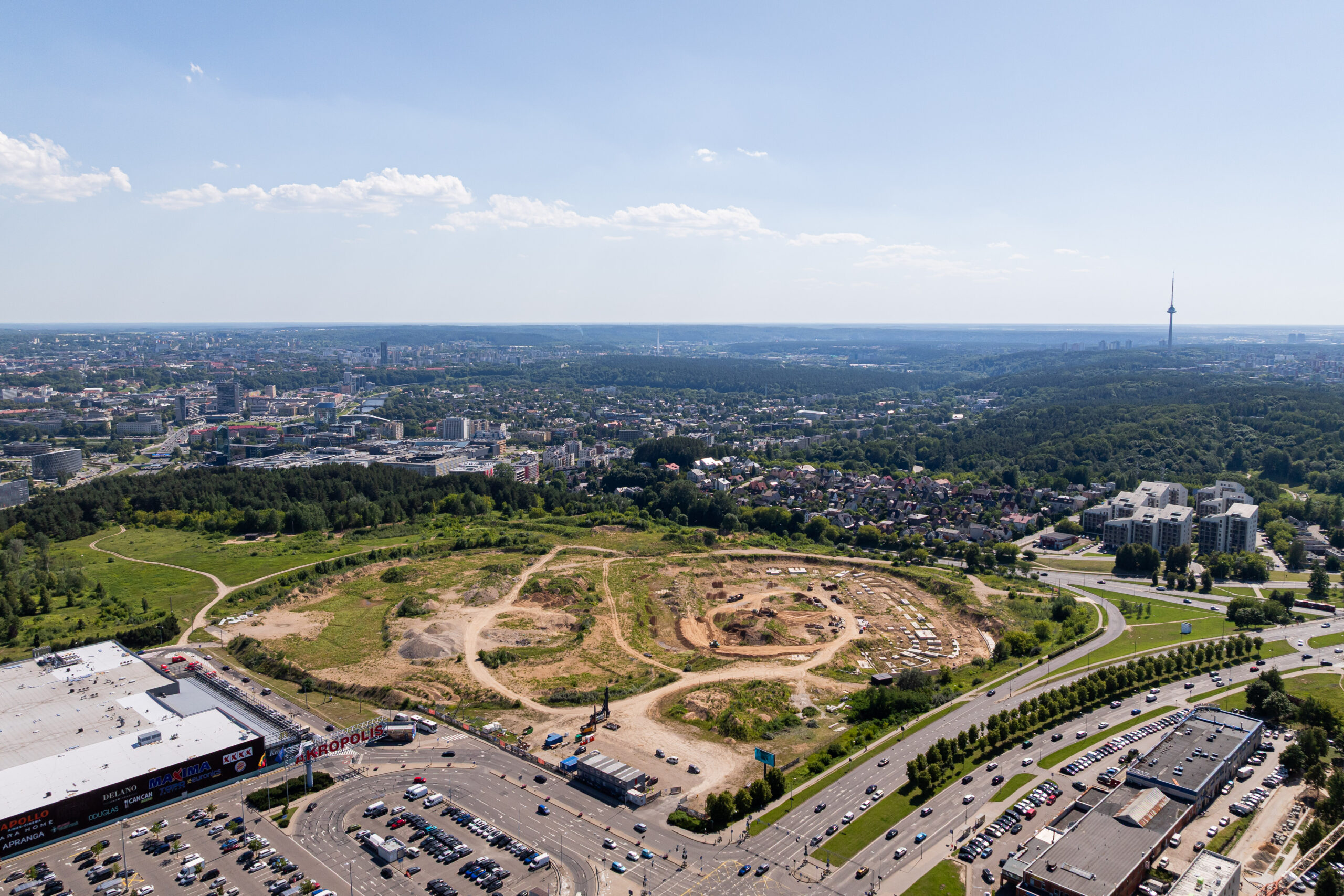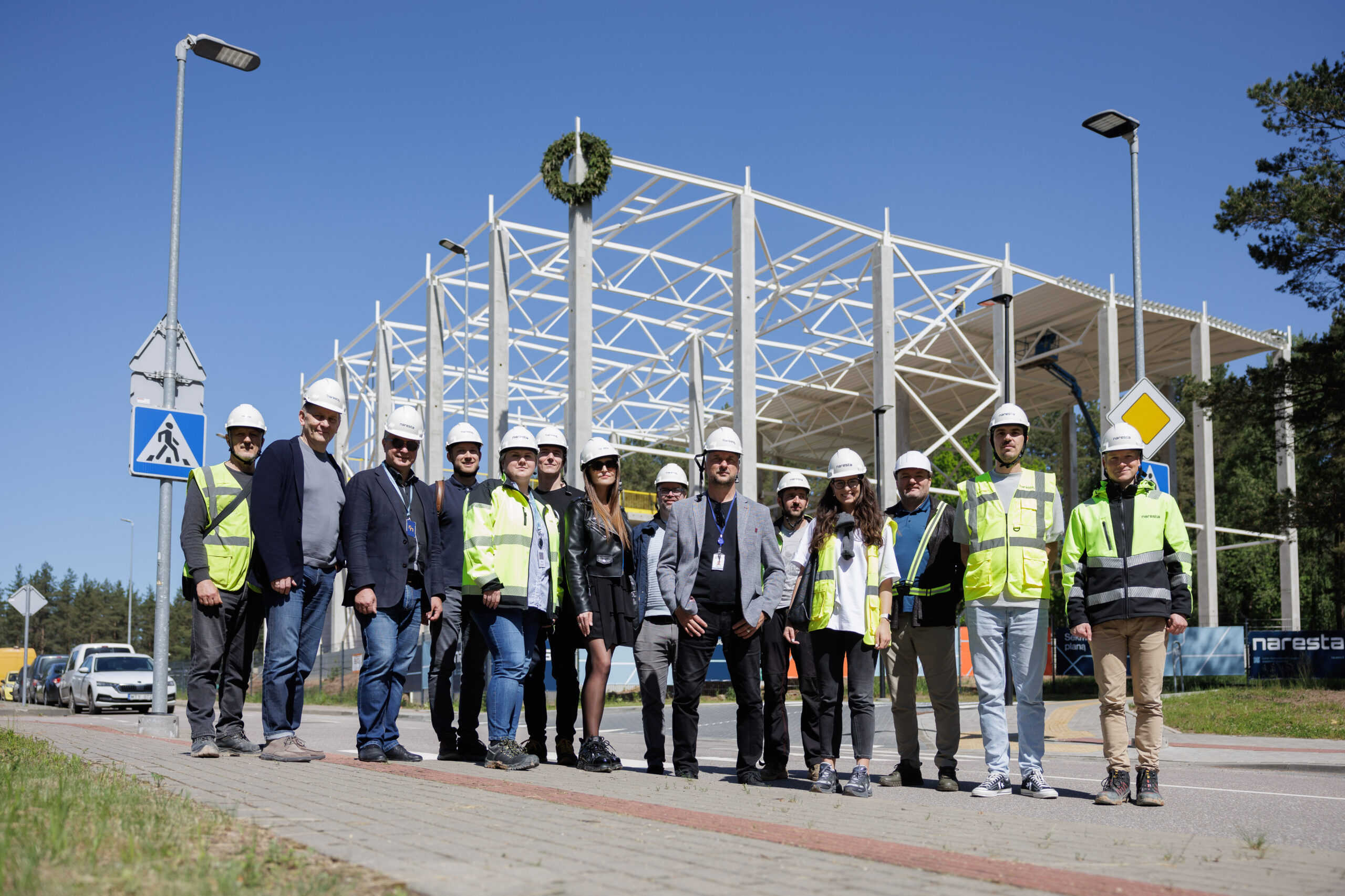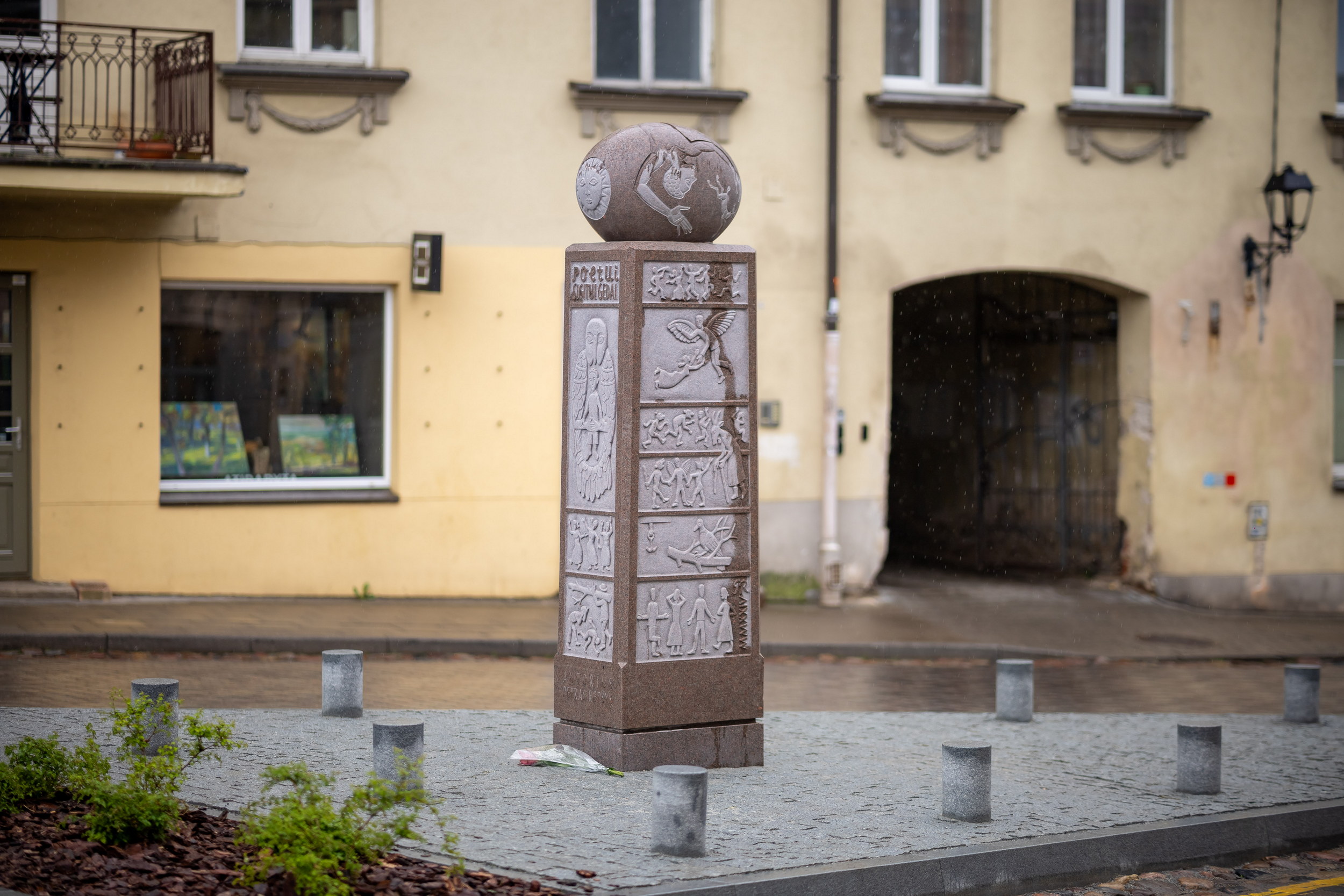Director of Naresta: the next three years will be extraordinary for the construction market

Naresta director Tadas Grincevičius says that many of the construction companies operating in our country will significantly grow over the next three years: an expert calculates that ongoing and planned military-related building and infrastructure procurement could amount to around 3 billion euros in investments. How sustainably businesses are able to address this challenge will largely depend on the choices made by the market.
“The size of Lithuania’s construction market is approximately €5.9 billion per year (according to the Official Statistics Portal), of which around €2.9 billion last year was allocated to infrastructure — roads, bridges — ant the remaining amount to building construction. Soon, the construction of active defence projects will significantly boost this amount.
It is clear that the Ministry of National Defense (KAM) has announced a construction procurement for the second stage of the Rūdninkai military town worth over a billion euros, which is planned to be implemented within two years. A similar or slightly smaller amount should be allocated to several other similar military towns in Lithuania. We also see smaller-scale procurements — tenders for the construction of ammunition storage facilities in various locations, training and exercise infrastructure, and transport infrastructure,” says the CEO of Naresta.
The market will grow by a billion per year
T. Grincevičius estimates that the construction purchases known today are expected to bring an additional investment of around EUR 1 billion per year to the market by 2028.
“From the discussions, we can see that both builders, and material suppliers, and manufacturers are ready to respond to this demand and to provide quality services. We simply have no other choice: defence must be the priority today.
However, it is natural that when demand exceeds supply, everything will start becoming more expensive: from materials to labour.
An excessively big challenge – qualified employees. They are already in short supply today and will be needed in particularly large numbers in the coming years. However, there is a risk — albeit temporary — that contractors who significantly expand their teams to meet defence construction demands may have to scale them back again in three years, once the major projects come to an end,” warns T. Grincevičius.
Workforce will be in short supply
According to the CEO of Naresta, there is a particular shortage of good construction engineers and managers in Lithuania — qualified and experienced professionals who are familiar with the procedures and laws in force in our country.
“We hear from designers that they face this problem even more acutely – we have even fewer design engineers, and their expertise is sorely needed on projects of this scale.
There is also a shortage of workers as well: for various reasons, we don’t invite them from the surrounding Eastern bloc countries or they can’t come, so the market is looking further afield for solutions — for example, in the Philippines, the Caucasus countries,” he said.
According to the assessment of an expert, the lack of employees will be very noticeable by the end of this year — at the beginning of next year, after the completion of some major defence construction tenders.
Solution: cooperation
According to T. Grincevičius, the most sustainable way to provide high-quality construction services on time to both the defence sector and private clients over the next three years is through active market collaboration.
“It is particularly important that all construction companies work on both military and civilian projects and share the responsibility.
If a part of the market focuses only on defence construction, after three years these projects will end — there will be a need to lay off employees, reduce teams, and search for clients and projects again. Therefore, the only sustainable path is to collaborate, engage smaller companies to perform specific tasks for larger ones, instead of temporarily luring their employees into its own teams,” says the director of Naresta.
By assessing, it would allow to better meet the orders of the private sector and necessary civil construction in the country — schools, kindergartens, hospitals, and the like.
“The geopolitical situation dictates that we must quickly create defence solutions, survive a dramatic temporary leap, but it depends on ourselves whether we can accept it sustainably and qualitatively,” — T. Grincevičius is convinced.



